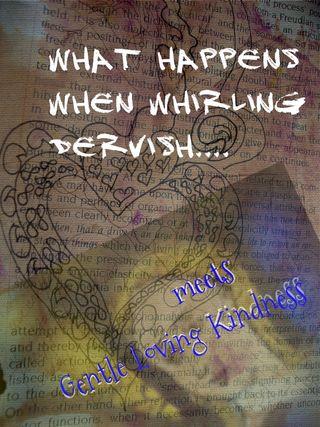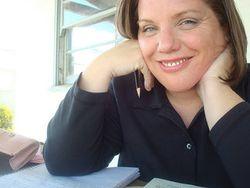 Never try to be in control of which direction your creative process wants you to go....
One of the assignments I have given myself this April is to “curate”
my vast body of work and then sculpt them into several different… somethings. I
am thinking books to start, probably with Kindle or other ebook methods to
begin.
Never try to be in control of which direction your creative process wants you to go....
One of the assignments I have given myself this April is to “curate”
my vast body of work and then sculpt them into several different… somethings. I
am thinking books to start, probably with Kindle or other ebook methods to
begin.
I have tons of writing lessons I created, how-to’s on writing, essays on writing and I even take photos about… writing.
This morning I pulled out a lesson I wrote three years ago to see if I could morph it into a new blog post as a part of my curation process. I decided as I wrote along here, telling you about my process, I would go one step further and give the “proper” definition of “curate”.
I was completely surprised at what I found.
I was expecting “curate” as in “curator” at an art gallery. I have been involved with enough art shows and even curated one of my own, so I know from firsthand experience a curator does this: “Select, organize, and look after the items in (a collection or exhibition).” Naturally I’ll be doing some clean up, revision and restoration along the way, dusting off cobwebs and other things curators usually do.
What I didn’t realize was the second definition of “curate” which actually fits as well when you think of it for a moment longer than your knee takes to jerk up to your chest. Curate = “A member of the clergy engaged as assistant to a vicar, rector, or parish priest.”
Just like that I have a new mindset about what I do when I am editing, revising and sculpting my work into specific forms like teleclasses, e-classes, books, stand alone lessons, collections of essays, how-to or info products. No longer is this drudgery and I am required to shove my creative mind into the dungeon. Now it is a soulful process where a different kind of touch is required, someone to come along that whirling dervish creative side and teach her about stillness.
I wonder if you can tell from reading what I just wrote that this blog post was supposed to be about Rainer Rilke’s love for the questions combined with blind contour drawing?
That blog post will have to wait for later.
This “a-ha” blog post that is begging to be shared with you is what wants to be born NOW.
One of the biggest challenges my writing students have is they get stuck on revision. They remember the red slash marks of their teachers in the past – they obviously were not curators – and they see it as something bad, scary and most likely with a negative or hurtful outcome. What if instead we begin to approach this “second part of the process” as sacred, holy and gentle.
My mind is immediately seeing a second side of me, I am wearing my robe and a floral headpiece of some sort. No, wait – I am wearing lots of lace… sort of loose flowing yet tight around the bodice. I look at my ethereal best and I take gentle care of these words the world is waiting to hear.
That feels much better than angry red slash marks, doesn’t it?
Yes. In April, I will be curating and curator of my life work.
I feel softer, lighter and I have an enormous yet peaceful smile on my face.
Tomorrow, perhaps – we will meet up with Rilke and Blind Contour Drawing, but today is our day to simply sit here and consider how our writing would improve if we gracefully put on our curator costume before we revise or edit. Instead of red slash marks and frustration with your whirling dervish creative self, minister gently with her – showing her both her brilliance “as is” and her brighter brilliance with a bit of polish and panache.
How does this shift how you approach the second stage of your writing process?
 This post is Number 4 of 30 and was inspired by the Ultimate Blog
Challenge. Throughout the month I will be posting writing tips
especially to make your writing (and your writing experience!) better.
This post is Number 4 of 30 and was inspired by the Ultimate Blog
Challenge. Throughout the month I will be posting writing tips
especially to make your writing (and your writing experience!) better.
I'm so glad you are here!
 Please stay in touch:
Follow me on Twitter: @JulieJordanScot
Please stay in touch:
Follow me on Twitter: @JulieJordanScot
Be sure to "Like" WritingCampwithJJS on Facebook. (Thank you!)
Follow on Instagram
And naturally, on Pinterest, too!
